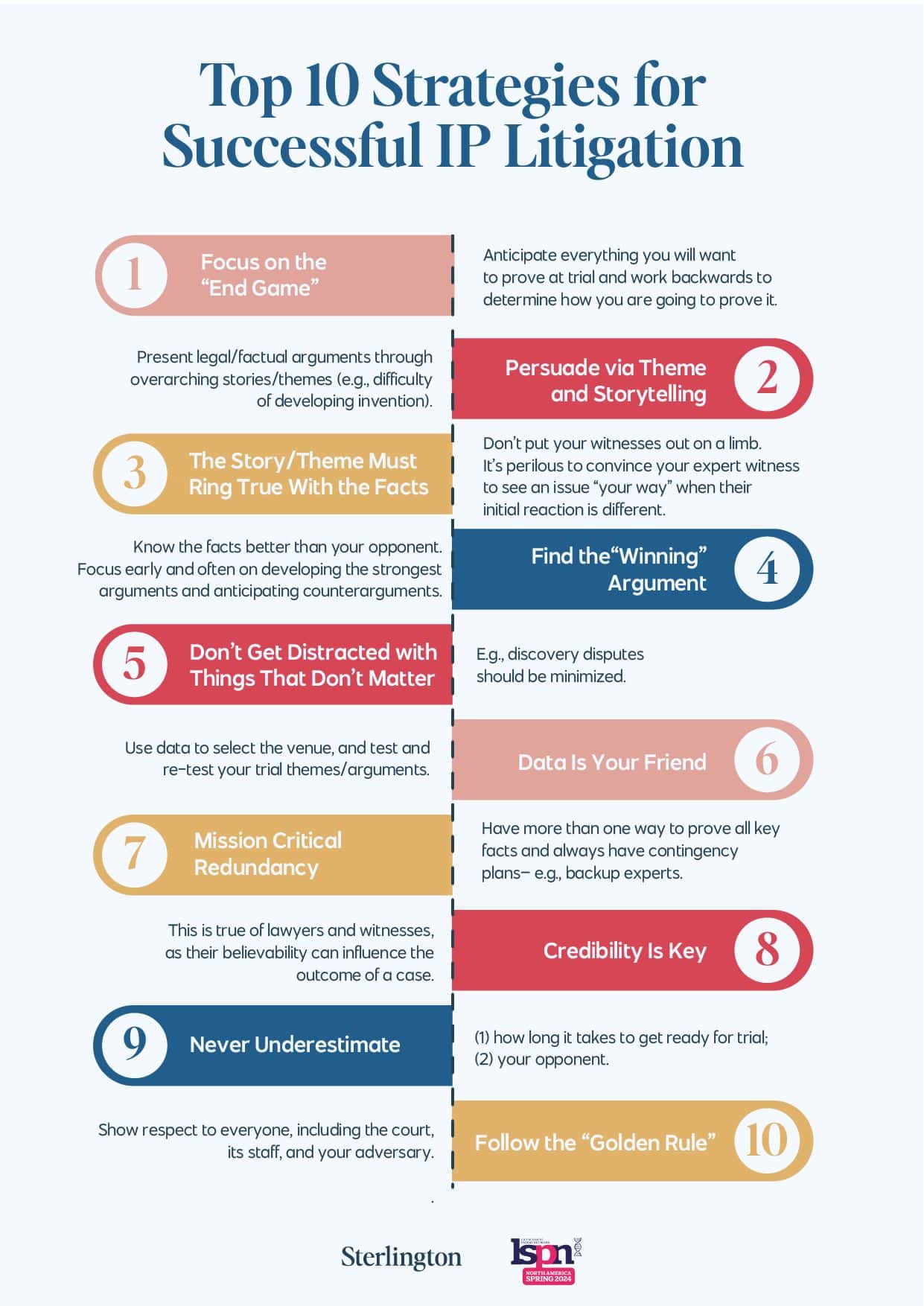Brian Slater and Greg Sephton, partners and Co-Heads of Sterlington’s Intellectual Property practice, were among the attendees at the 6th Annual LSPN North America Spring Conference in Boston. This event brought together in-house patent counsel and other patent professionals from the pharmaceutical, biotech, and MedTech sectors to delve into the latest trends and hurdles facing life sciences intellectual property.
Brian and Greg, both seasoned IP litigators with a proven track record representing industry leaders including Gilead, Merck, AstraZeneca, and Novartis, shared their wealth of experience in high-stakes Hatch-Waxman and other patent disputes.
Leading a roundtable discussion at the conference on “Strategies for Successful IP Litigation,” they provided attendees with insights that, combined with the broader conference dialogue, led them to compile their top 10 strategies for successful IP litigation:
1. Focus on the “end game”: Anticipate everything you will want to prove at trial and work backwards to determine how you are going to prove it.
2. Persuade via theme and storytelling: Present legal/factual arguments through overarching stories/themes (e.g., difficulty of developing invention).
3. The story/theme must ring true with the facts: Don’t put your witnesses out on a limb. It’s perilous to convince your expert witness to see an issue “your way” when their initial reaction is different.
4. Find the “winning” argument: Know the facts better than your opponent. Focus early and often on developing the strongest arguments and anticipating counterarguments.
5. Don’t get distracted with things that don’t matter: E.g., discovery disputes should be minimized.
6. Data is your friend: Use data to select the venue, and test and re-test your trial themes/arguments.
7. Mission critical redundancy: Have more than one way to prove all key facts and always have contingency plans – e.g., backup experts.
8. Credibility is key: This is true of lawyers and witnesses, as their believability can influence the outcome of a case.
9. Never underestimate: (1) how long it takes to get ready for trial; (2) your opponent.
10. Follow the “golden rule”: Show respect to everyone, including the court, its staff, and your adversary.
These expert tips offer a practical roadmap for navigating the complexities of intellectual property disputes. By adopting a thoughtful and prepared approach, employing clear and persuasive communication, and adhering to the highest ethical standards, you can enter the courtroom with confidence.
Download our handy infographic and have Brian and Greg’s 10 strategies at your fingertips. If you need guidance on your IP matter, reach out to Brian and Greg for a consultation.


